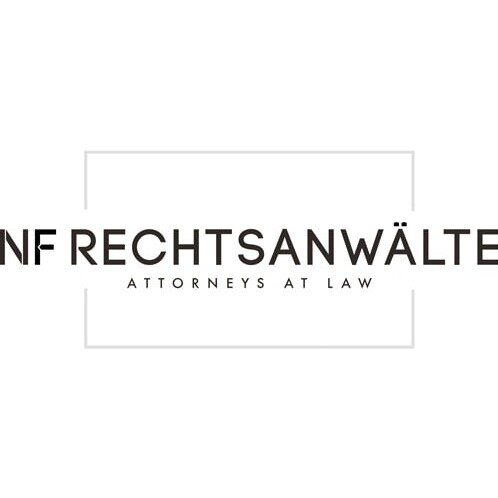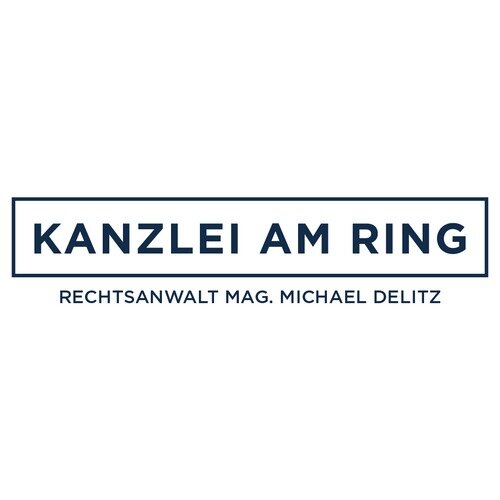Best Oil, Gas & Energy Lawyers in Vienna
Share your needs with us, get contacted by law firms.
Free. Takes 2 min.
List of the best lawyers in Vienna, Austria
About Oil, Gas & Energy Law in Vienna, Austria
Vienna, Austria, plays a significant role as a major hub in the European energy sector. The city is home to the headquarters of several key international organizations, such as OPEC. The country itself is rich in energy resources, and its legal framework is designed to promote sustainable development, environmental protection, and security of supply. Oil, Gas & Energy law in Vienna encompasses a broad range of issues, from resource extraction and environmental regulation to commercial transactions and energy trading.
Why You May Need a Lawyer
Securing legal expertise in the field of Oil, Gas & Energy can be crucial for a variety of reasons:
- Regulatory Compliance: Navigating the intricate regulatory environment in Austria, including permits, licenses, and environmental regulations, can be complex.
- Contracts and Transactions: Drafting, reviewing, and negotiating contracts related to exploration, extraction, and supply can require specialized legal knowledge.
- Dispute Resolution: Legal disputes can arise over various issues, such as breaches of contract, property rights, or environmental impact, necessitating expert legal intervention.
- Corporate Matters: Mergers, acquisitions, and other corporate transactions in the energy sector often involve significant legal considerations.
Local Laws Overview
The legal framework governing Oil, Gas & Energy in Vienna, Austria, includes several key laws and regulations:
- Mineral Raw Materials Act: This act regulates the exploration and extraction of mineral resources, including oil and gas, in Austria.
- Environmental Impact Assessment Act: This law mandates assessments to ensure that any major energy projects comply with environmental standards.
- Petroleum Act: Governs the extraction, production, and distribution of petroleum products, ensuring the industry's adherence to national policies and standards.
- Energy Efficiency Act: Sets out requirements and goals for improving energy efficiency across various sectors in Austria.
Frequently Asked Questions
Do I need a permit to explore for oil or gas in Austria?
Yes, you need to obtain several permits and licenses from the relevant authorities before you can start exploring for oil or gas in Austria. These permits ensure compliance with various environmental and safety regulations.
What are the main environmental regulations for energy companies in Vienna?
Energy companies must adhere to the Environmental Impact Assessment Act, which requires comprehensive assessments and public consultations for major projects. Other relevant regulations include waste management laws and air quality standards.
Can foreign companies invest in Austria's energy sector?
Yes, foreign companies are welcome to invest in Austria's energy sector. However, they must comply with all local regulations and may be subject to additional requirements or scrutiny.
What are the common types of contracts in the energy sector?
Common contracts include exploration and production agreements, joint venture agreements, supply contracts, and service agreements. Each type of contract involves specific legal considerations and obligations for the parties involved.
How are energy disputes typically resolved in Austria?
Energy disputes can be resolved through negotiation, arbitration, or litigation. Arbitration is a popular choice due to its confidentiality and efficiency, especially in complex commercial disputes.
Are there specific tax laws for energy companies in Austria?
Energy companies are subject to general corporate tax laws, but there are specific provisions related to the taxation of natural resources and energy production. Consult a legal expert for detailed tax planning and compliance strategies.
What is the role of the regulator in Austria's energy sector?
Regulatory bodies, such as the E-Control (Austrian Regulatory Authority for Electricity and Gas), oversee the industry's operations, ensure compliance with laws, and promote fair competition and consumer protection.
How does Austria ensure energy security?
Austria implements various measures to ensure energy security, including maintaining strategic oil reserves, diversifying energy sources, and investing in renewable energy projects.
What incentives are available for renewable energy projects in Austria?
The Austrian government offers several incentives for renewable energy projects, including subsidies, tax benefits, and grants aimed at promoting the development of clean energy technologies.
How can I stay updated on changes in energy regulations in Austria?
Staying informed about regulatory changes can be achieved through subscription to industry journals, participation in conferences and seminars, and consulting with legal experts who specialize in Oil, Gas & Energy law.
Additional Resources
If you are seeking further information or assistance, consider reaching out to these resources:
- Federal Ministry for Climate Action, Environment, Energy, Mobility, Innovation and Technology: Provides guidelines, policies, and updates on energy regulations.
- Austrian Regulatory Authority for Electricity and Gas (E-Control): Offers information and support related to the regulation of energy markets in Austria.
- OPEC: The Organization of the Petroleum Exporting Countries is headquartered in Vienna and can provide insights into global oil policies.
- Local Law Firms: Specialized firms in Vienna can offer personalized legal advice and services tailored to your needs.
Next Steps
If you require legal assistance in the field of Oil, Gas & Energy in Vienna, Austria, follow these steps:
- Identify Your Needs: Determine the specific legal issues you are facing, whether it's regulatory compliance, contract negotiation, or dispute resolution.
- Research and Select a Lawyer: Look for legal professionals or firms with expertise in Oil, Gas & Energy law in Vienna. Check their credentials, experience, and client reviews.
- Schedule a Consultation: Arrange an initial meeting with the lawyer to discuss your case, ask questions, and understand their approach to your legal matter.
- Prepare Documentation: Gather all relevant documents, contracts, permits, and correspondence related to your case to provide to your lawyer during the consultation.
- Follow Legal Advice: Follow the guidance provided by your lawyer to ensure compliance with all relevant laws and regulations, and to achieve the best possible outcome for your case.
By taking these steps, you can navigate the complexities of Oil, Gas & Energy law in Vienna, Austria, with confidence and ensure that your legal rights and interests are well-protected.
Lawzana helps you find the best lawyers and law firms in Vienna through a curated and pre-screened list of qualified legal professionals. Our platform offers rankings and detailed profiles of attorneys and law firms, allowing you to compare based on practice areas, including Oil, Gas & Energy, experience, and client feedback.
Each profile includes a description of the firm's areas of practice, client reviews, team members and partners, year of establishment, spoken languages, office locations, contact information, social media presence, and any published articles or resources. Most firms on our platform speak English and are experienced in both local and international legal matters.
Get a quote from top-rated law firms in Vienna, Austria — quickly, securely, and without unnecessary hassle.
Disclaimer:
The information provided on this page is for general informational purposes only and does not constitute legal advice. While we strive to ensure the accuracy and relevance of the content, legal information may change over time, and interpretations of the law can vary. You should always consult with a qualified legal professional for advice specific to your situation.
We disclaim all liability for actions taken or not taken based on the content of this page. If you believe any information is incorrect or outdated, please contact us, and we will review and update it where appropriate.













